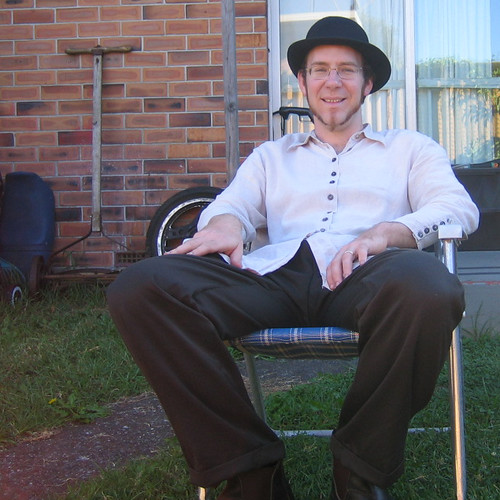Heather finished our food footprint calculations last week, and only our fish use is unsustainable. We are
very excited by this result, as we consider our diet to be ample, interesting, varied, and low-maintenance -- that is, something other kiwis could take up relatively easily. (The big sticking point is always the low meat consumption, but there seems to be a steady social change there.)
I hypothesise that our food footprint is more sustainable than our emissions footprint because property rights have centred around land since time immemorial but clean air is still anybody's to pollute. A limited and less tangible property system applies to fishing, and we are correspondingly less sustainable there. I wouldn't know how to substantiate these thoughts with solid data, sadly.
Feel free to click through for details, however the underlying calculations are still being reformatted for publication.
Notes:
- Heather eats a lot of fish as a simple source of protein in her highly calorie-constrained diet, and this raises us to 140% of the estimated sustainable average wild fish catch. That average is itself about 40% of the current global take, so we're between the two numbers at present. As noted above, you simply can't plant 250% of suitable land surface. (Although we might be harvesting non-sustainably due to cheap oil or short-term practises. Even hundreds of years is short term for land, after all.)
- The land percentages are based on current farmed land area. This represents roughly 1/3 of land area, another 1/3 being forest and the remaining 1/3 put to other uses.
- Most of our land-sourced protein is plant based. We love beans, although haven't yet fitted them into my favoured Thai cuisine. A pressure cooker is your friend if you eat lots of beans and your cook isn't home most of the day - even if somebody is home, you'll save on energy.
- What meat we do eat has been entered as the sum of the the area on which the animals graze and the area required to grow supplemental feed. We have assumed free range animals (increasing the numbers), although we've only just switched for chicken pieces. (We haven't found a nearby source of free range pork, so have recently restricted ourselves to pork tongues.) Sheep and cattle are traditionally grass fed in NZ, but with the recent intensification of dairying the use of supplemental feed is rising.
- Goats have been entered as zero footprint, as (in NZ) they are used as scrub control and their meat is a side benefit. We decided against entering a negative value. Goat has not been a typical meat in NZ, but is favoured by various immigrant groups and we live near the only supermarket I know which sells it. The goat also happens to be cheaper than beef, and halal (useful for certain guests).
- Honey has also been entered as a zero footprint product, as pollination of commercial agriculture requires so many bees.
- The 'Flavourings' category includes cream and fish sauce as well as herbs and spices. Either Heather couldn't find a number for how much fish is in fish sauce, or (more likely) it was very small as no value has been entered for flavourings in the sea 'footprint' column.
In other news, Google Spreadsheets are not quite ready for prime time. I just couldn't figure out how to do a % pie chart with an empty wedge, for example. I couldn't even graph data and labels in non-adjacent columns!






